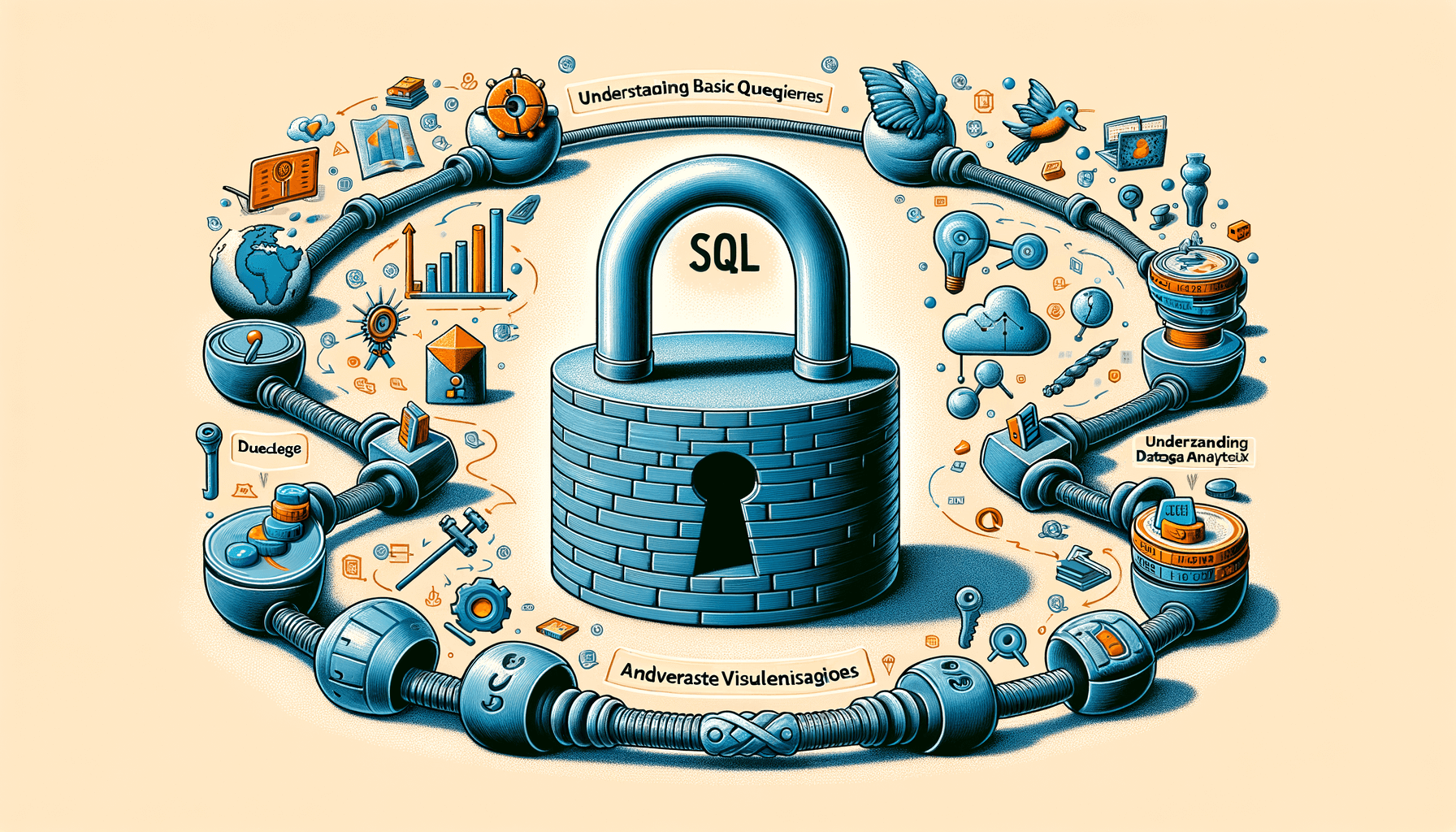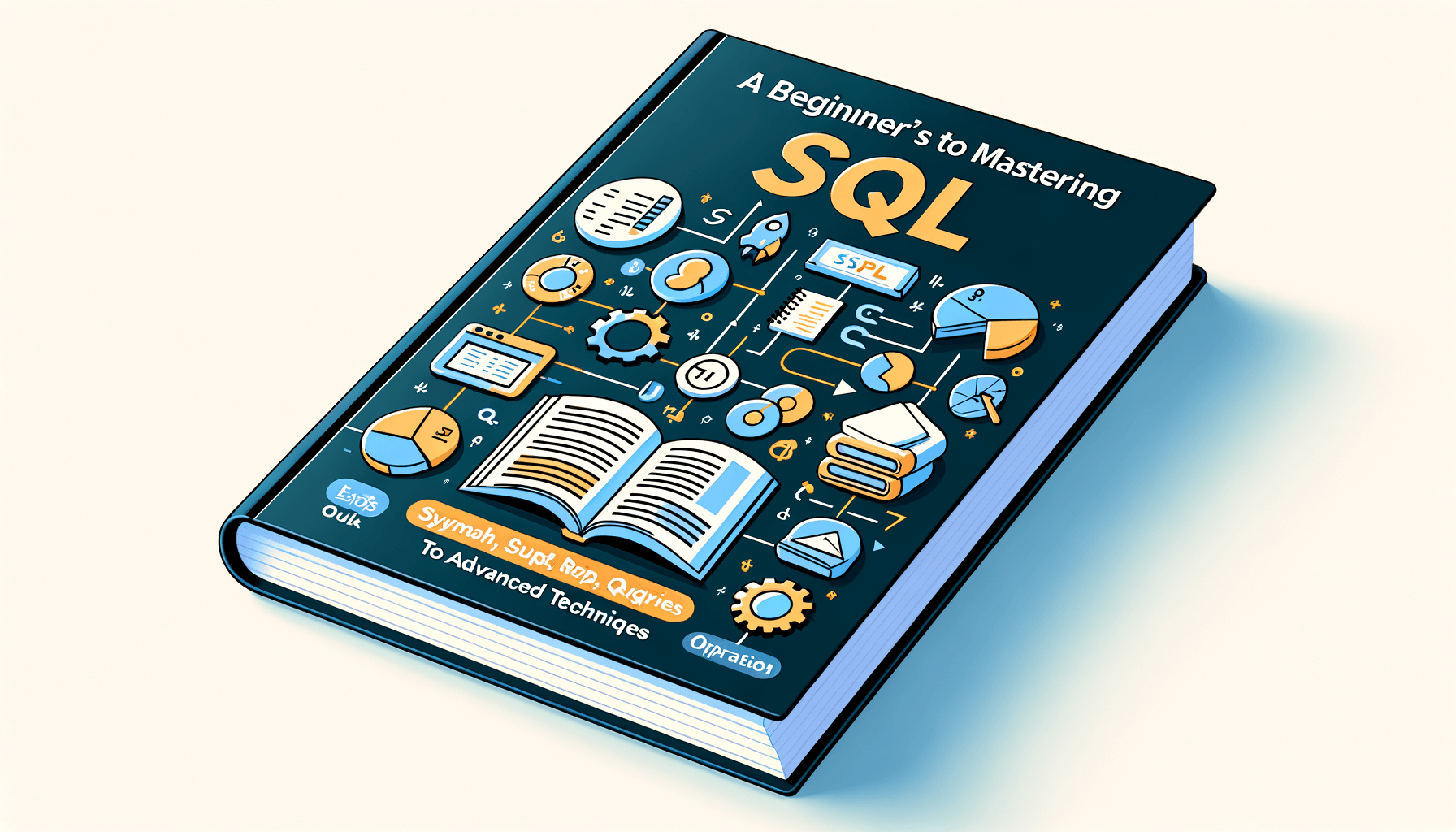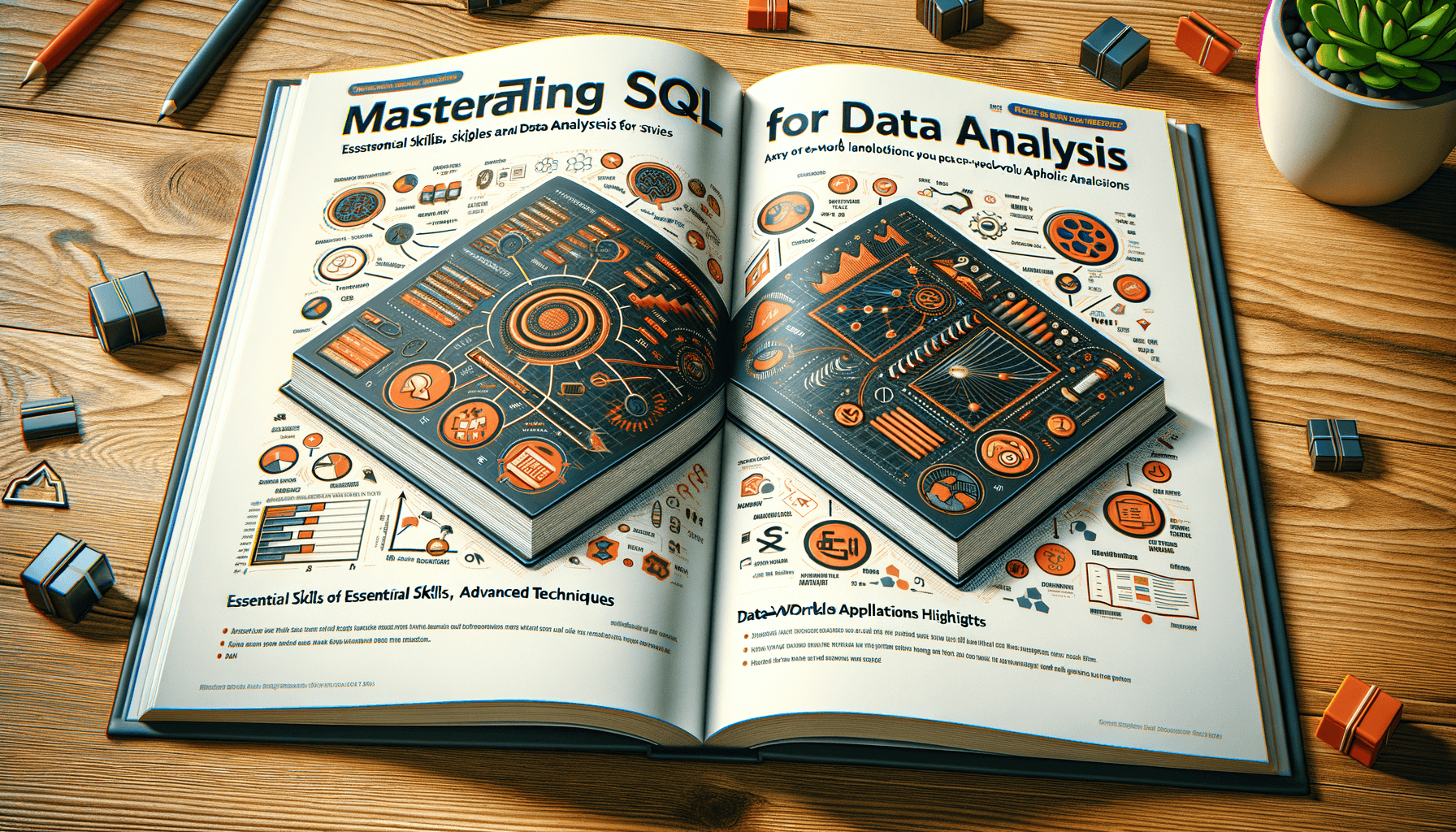A big variety of articles and resources

Mastering Data Analysis: Learn SQL for In-Depth Insights
 Sia Author and Instructor
Learn SQL
Sia Author and Instructor
Learn SQL
8 minute read
Understanding the Role of SQL in Data Analysis
Why SQL is Essential for Data Analysts
SQL is crucial for data analysts because it offers a standardized way to search, manipulate, and combine data from relational databases. This helps analysts to efficiently obtain, convert, and aggregate data, allowing them to extract insights and make informed decisions. SQL provides a systematic method for handling complex datasets, making it an indispensable tool for data-driven decision-making.
Real-World Applications of SQL
SQL is used in various real-world scenarios, such as:
- Data Retrieval: SQL allows analysts to access specific data from databases efficiently. They can filter, sort, and select data based on multiple conditions.
- Data Manipulation: Analysts can modify data to fit their needs, whether it's updating records or deleting unnecessary information.
- Data Aggregation: SQL helps in summarizing data, making it easier to understand large datasets by grouping and calculating averages, sums, and other metrics.
SQL vs Other Data Analysis Tools
While there are many tools available for data analysis, SQL stands out due to its ability to handle large datasets and perform complex queries. Unlike spreadsheet software, which can be limited in terms of data volume and complexity, SQL is designed to manage and analyze vast amounts of data efficiently. Other tools like Python and R are also powerful, but SQL's simplicity and effectiveness make it a go-to choice for many analysts.
Mastering SQL can significantly enhance your ability to analyze data, making you a more effective and insightful data analyst.
Mastering Basic SQL Operations
In the quest to unlock the immense power of data, mastering SQL is akin to discovering the first key. As a data scientist, understanding and implementing basic SQL operations pave the path to intricate data analysis and insights extraction. This segment delves into the core operations and techniques essential for data manipulation, offering a blend of theoretical insights and practical applications.
Advanced SQL Techniques for In-Depth Analysis
Joining Multiple Tables
When working with complex datasets, it's often necessary to combine data from multiple tables. This is where JOIN operations come into play. Mastering JOINs is crucial for any data analyst. There are several types of JOINs, including INNER JOIN, LEFT JOIN, RIGHT JOIN, and FULL OUTER JOIN, each serving a different purpose. For example, an INNER JOIN returns only the rows that have matching values in both tables, while a LEFT JOIN returns all rows from the left table and the matched rows from the right table.
Using Window Functions
Window functions are powerful tools for performing calculations across a set of table rows that are somehow related to the current row. Unlike aggregate functions, window functions do not cause rows to become grouped into a single output row. Instead, the rows retain their separate identities. Common window functions include ROW_NUMBER(), RANK(), and DENSE_RANK(). These functions are particularly useful for tasks like ranking, running totals, and moving averages.
Optimizing SQL Queries
Advanced SQL skills aren’t just about functionality — you need performance too. Slow queries can cripple your analysis. Here are some techniques for optimizing SQL query performance:
- Indexes: Improve filtering and JOINs. But beware of “index overuse” — having too many indexes can slow down write operations.
- Partitions: Break up large datasets into partitions to parallelize operations and improve query performance.
- Query Refactoring: Simplify complex queries by breaking them into smaller, more manageable parts.
Efficient SQL queries are the backbone of effective data analysis. By optimizing your queries, you can handle larger datasets and extract insights more quickly.
Data Visualization with SQL
Creating Visual Reports
The ability to present data findings in a clear and compelling way is crucial in data science. SQL, when used alongside data visualization tools, provides a powerful means to create impactful charts, graphs, and dashboards. Tools like Tableau, Power BI, and Grafana can connect directly to SQL databases, allowing data scientists to query data and visualize the results in real-time.
Integrating SQL with Visualization Tools
Start exploring data visualization using SQL with our practical guide. You’ll learn how to harness the powerful features of SQL to create effective visualizations that enhance your data analysis – and make it more understandable and impactful. SQL is a specialized programming language designed for managing and manipulating relational databases. It provides a standardized framework.
Best Practices for Visual Data Representation
SQL Queries allow us to get the data, but we still have to TELL THE STORY of those results! (DALLE3)
A few ways to impressively present your SQL data insights:
BUSINESS INTELLIGENCE TOOLS
Visualize data by connecting your SQL database to BI tools like Tableau, Power BI, and Qlik. Drag and drop to create charts, graphs, and interactive dashboards.
SQL Reporting Services
Use Microsoft SSRS to build visualizations right from your SQL queries — flexible charts, maps, KPIs, and more.
-
Tableau offers extensive SQL support, enabling users to drag and drop SQL queries into their workspace to generate visualizations.
-
Power BI integrates SQL queries within its data modeling environment, empowering users to craft interactive reports and dashboards based on real-time SQL data.
-
Grafana excels at visualizing time-series data, with SQL as the data source, to monitor and analyze trends over time.
SQL in Different Industries
SQL is a powerful tool used across various industries to manage and analyze data efficiently. Its versatility makes it an essential skill for professionals in many fields.
Financial Services
In the financial sector, SQL is crucial for handling vast amounts of data related to transactions and user accounts. Financial analysts use SQL to create specialized databases that monitor cash flow and predict the financial health of institutions. This helps in making informed decisions and developing review strategies.
Healthcare
Hospitals and healthcare providers rely on SQL to manage patient records. This enables quick data retrieval for treatment history and billing information, enhancing patient care and operational efficiency. SQL also supports the development of analytical datasets, facilitating knowledge building in the healthcare sector.
Retail
Retail businesses use SQL to manage inventory, sales, and customer data. By crafting interactive reports and applying machine learning algorithms, retailers can gain insights into customer behavior and optimize their operations. SQL's ability to handle large datasets makes it invaluable for the retail industry.
Practical Tips for Learning SQL
Hands-On Practice
The best way to learn SQL is by doing. Practice regularly to get comfortable with writing queries. Use platforms like SQLPad, LeetCode, and HackerRank to test your skills. These sites offer challenges that range from beginner to advanced levels, helping you improve step by step.
Utilizing Online Resources
There are many online resources available to help you learn SQL. Websites like sqlskillz.com and udemy.com offer courses that cover everything from the basics to advanced topics. Many of these courses are interactive, allowing you to practice as you learn. No credit card required to start learning on sqlskillz.
Joining SQL Communities
Engaging with others who are also learning SQL can be very helpful. Join forums like Stack Overflow or Reddit's SQL community to ask questions and share knowledge. Participating in these communities can provide insights into real-world problems and innovative solutions.
Learning SQL is a journey. The more you practice and engage with the community, the better you'll become. Don't be afraid to make mistakes; they are part of the learning process.
Learning SQL can be a game-changer for your career. Whether you're just starting or looking to sharpen your skills, our courses are designed to help you succeed. Visit our website to explore our comprehensive learning modules and get started today!
Conclusion
Mastering data analysis with SQL opens up a world of possibilities. By learning how to join tables, use SQL functions, and visualize data, you can uncover valuable insights hidden in your datasets. Whether you're just starting or looking to deepen your skills, SQL is a powerful tool that can help you make data-driven decisions. Keep practicing and exploring new techniques, and you'll be well on your way to becoming an expert in data analysis. Remember, the key to success is continuous learning and application. So, dive in and start your journey today!
Frequently Asked Questions
What is SQL and why is it important for data analysis?
SQL stands for Structured Query Language. It's used to manage and manipulate databases. SQL is important for data analysis because it helps you retrieve and analyze data stored in databases.
Can I learn SQL without any prior programming experience?
Yes, you can learn SQL without any prior programming experience. It's a straightforward language, and many resources are available to help beginners get started.
What are some common SQL functions used in data analysis?
Some common SQL functions used in data analysis include COUNT(), SUM(), AVG(), MIN(), and MAX(). These functions help you perform calculations on your data.
How can I practice SQL skills effectively?
You can practice SQL skills by working on real-life projects, using online SQL editors, and participating in SQL challenges and exercises available on various learning platforms.
What are the benefits of using SQL over other data analysis tools?
SQL is highly efficient for handling large datasets, offers robust querying capabilities, and is widely used across industries. It integrates well with other tools and technologies, making it a versatile choice for data analysis.
Is SQL used in specific industries?
Yes, SQL is used in various industries such as finance, healthcare, and retail. It helps professionals in these fields to manage, analyze, and draw insights from large amounts of data.
Related Articles

Learn SQL the Easy Way: A Beginner's Guide
10 minute read

Master SQL with Engaging Learn SQL Videos
10 minute read



